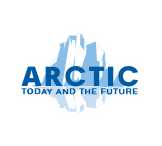
|
Two plenary sessions, 35 panel and working sessions, conferences and round tables have been held during two days of the IX International Forum “Arctic: Today and Future”. The discussion events were attended by delegates from 38 regions of Russia and 22 foreign countries. 
|
|
The first word at the “Regions as key participants in the development of the Arctic zone of Russia” plenary session was given to the Artur Chilingarov, Special Representative of the President of Russia for International Cooperation in the Arctic and Antarctic, President of the Association of Polar Explorers. |

|
|
“A Ministry and a State Commission on the Arctic Development are operating in Russia today. Moreover, Polar Explorer's Day, a professional holiday has been established. Five years ago we could only dream about it. A lot has been done, but there is still more to do””, said Artur Chilingarov welcoming the participants of the Forum. |
AT THE PLENARY SESSION THE HEADS OF REGIONS TOLD ABOUT THE ARCTIC SUBJECTS DEVELOPMENT EXPERIENCE

|
“To live in the North” regional program, aimed at improving the quality of life, is being developed in the Murmansk region. The Republic of Sakha (Yakutia) will prepare a regional development strategy until 2035. In the next 5 years, citizens of Yamalo-Nenets Autonomous District that live in dilapidated buildings (about 1 million square meters) will be re-housed. Representatives of the Komi Republic and Magadan Region made proposals to expand the Arctic zone of Russia. The First Deputy Governor of the Arkhangelsk region Alexey Alsufiev has confirmed that the region is ready to become a base for the creation of the first Arctic scientific and educational center. Deputy Chairman of the Krasnoyarsk region Government Anatoly Tsykalov said that “Yenisei Siberia” major industrial project continues to form on the territory of the subject. It is projected to provide up to 25 thousand new jobs. In addition, the region is working on the creation of ethnic villages for indigenous peoples. |
NEW LEGISLATIVE FRAMEWORK OF THE ARCTIC GOVERNMENT POLICY

|
In order to implement all the projects, declared by the regions, a new legislative basis of state policy in the Arctic zone of Russia is required. This was the main issue of the “New horizons of public policy in the Arctic” plenary session, where the Ministry of Development of the Far East and the Arctic made a number of statements. A special economic regime can be established in the Arctic zone already in 2020; the investments in the modernization of the region will amount to ₽15 trillion; 200 thousand new jobs are expected to be created in the Arctic zone within 15 years; a federal center for the development of health protection will be opened in Arkhangelsk. All of the abovementioned will be implemented due to the benefits provided by the development strategy of the Arctic zone of Russia until 2035, said Deputy Minister Alexander Krutikov. |
|||
|
At the initiative of the Association of Polar Explorers and the State Duma Committee on Ecology and Environmental Protection, ₽1 billion 700 million will be allocated to the organization of the “North Pole - 2020” scientific expedition, said Committee Chairman Vladimir Burmatov. |

|
|||
|
According to Senator Alexander Akimov, infrastructure development is needed as it will be difficult to develop the Arctic without the construction of roads, railroads, and new airports. |

|
The State Duma is interested in rapid promotion of the initiatives, provided by the new package of documents on the development of the Arctic zone, stressed the First Deputy Chairman of the State Duma Committee on Regional Policy and Problems of the North and Far East Valentina Pivnenko. |
||

|
102 objects that pose as an environmental hazard have been identified in the Russian Arctic zone. According to the Deputy Chairman of the State Duma Committee on Regional Policy and Problems of the North and Far East Vladimir Pushkarev, the solution of environmental problems in the Arctic is possible only by synergy of state corporations, regions and large industrial companies. |

|
The key to the development of the entire Arctic is a successful cooperation between Russia and the United States in the Bering sea region. This was stated by the Ambassador at Large of the Russian Foreign Ministry, Nikolai Korchunov. He noted that the global nature of problems in the Bering sea region requires a joint search for solutions and an open dialogue between the two countries. |

|

|
Denis Soloviev, Deputy Board Chairman of the NOVATEK PJSC,
said that the company plans to strengthen
its work on the Arctic social projects.
Launch of the first transarctic data cable will strengthen
Russia's position in the Arctic, said Gevorg Vermishyan,
General Director of MegaFon PJSC.
|
Cooperation agreements between the Association of Polar Explorers and the Ministry of the Far East and Arctic Development have been signed during the Forum. The Rossiya Bank JSC has signed two agreements with the St. Petersburg Committee for the Arctic and ITMO High park on the cooperation in the field of investment projects for the digitalization of the Arctic region. |

|
||

|
THE ASSOCIATION OF POLAR EXPLORERS PROPOSED TO ANNOUNCE 2021 AS YEAR OF ARCTICA IN RUSSIA |
||

|
A meeting of the Association of Polar Explorers has been held during the framework of the forum, where an initiative to declare 2021 as the Year of the Arctic in Russia. This would coincide with the year of Russia's chairmanship in the Arctic Council. Also, 28th of January, the opening day of Antarctica, may become a memorable date. According to Artur Chilingarov this initiative has already been reported to the President of the Russian Federation. |
|
|
A large-scale exhibition had functioned for two days in the exposition space for the support of the business program of the Forum. Its exhibitors were the largest companies and enterprises working in the Arctic, as well as the representatives of the Arctic regions. |
||

|

|
|
|
The forum has ended with a cultural program in the Russian Museum of Ethnography, where the participants had an excursion to “The Arctic: the land inhabited” exhibition. |




